How the humble back garden became the battleground for the war on woke
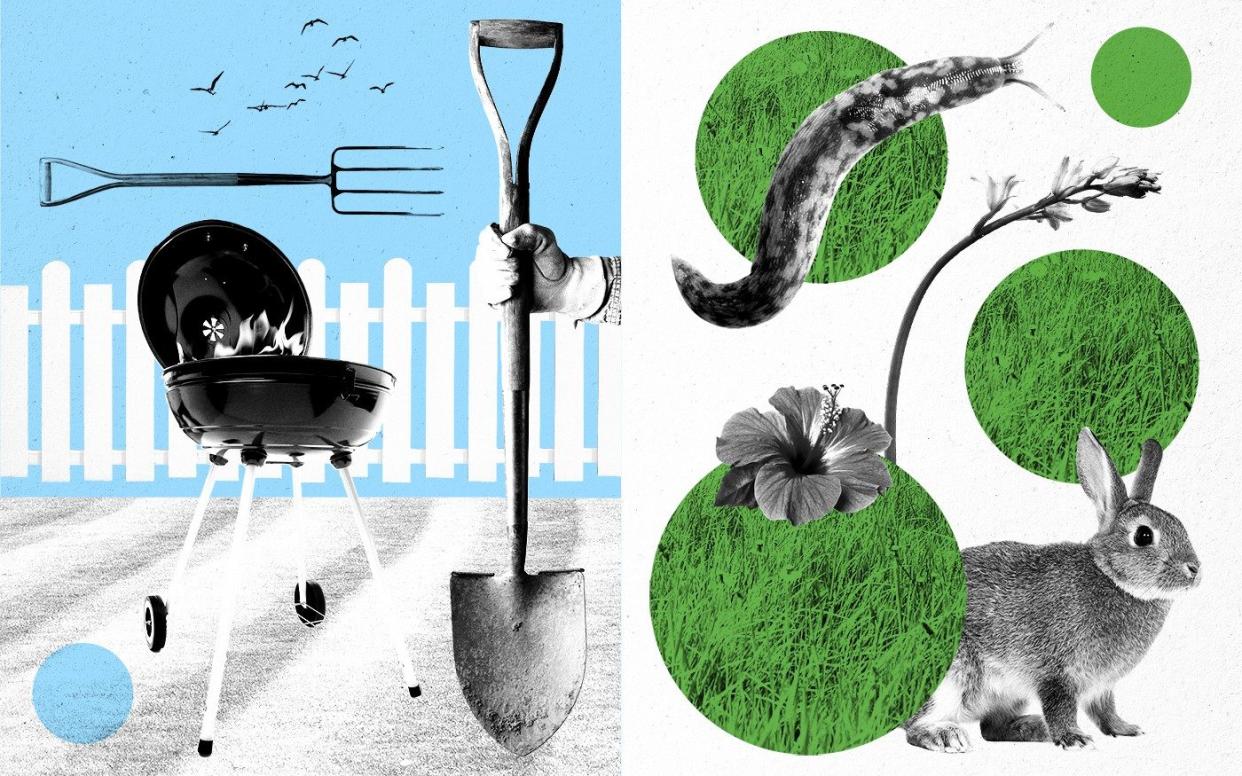
- Oops!Something went wrong.Please try again later.
- Oops!Something went wrong.Please try again later.
Last Friday, I mowed my lawn for the first time this year. The sun had (briefly) come out and it seemed like a good time to do it. Hopefully I won’t come under too much opprobrium for scything through what was pretty much a jungle-full of weeds – after all, we weren’t quite in no-mow May yet.
Although there’s still the other controversies to consider: like whether it’s still okay to continue feeding the birds, or whether I’m alright to dig out the dandelions. And don’t even get me started on how I’m going to deal with slugs this summer, or where I can source compost that contains peat to plant out my seedlings.
The simple pastime of tending to one’s garden – that most English of amusements – has, in a very un-English way, become over the past few years a hotbed of controversy, with gardeners glaring across fences and judging their neighbours for doing the wrong thing, whether that’s spraying weeds with pesticide or hanging up too many bird feeders. As with so many other aspects of modern life, gardening has become about more than just the essential joy of cultivation; it now signifies who you are and what you stand for.
So before you pick up a fork this spring, what are the essential battlelines – and where will you stand? Here’s our handy guide to the flashpoints:
Traditional vs no-dig gardens
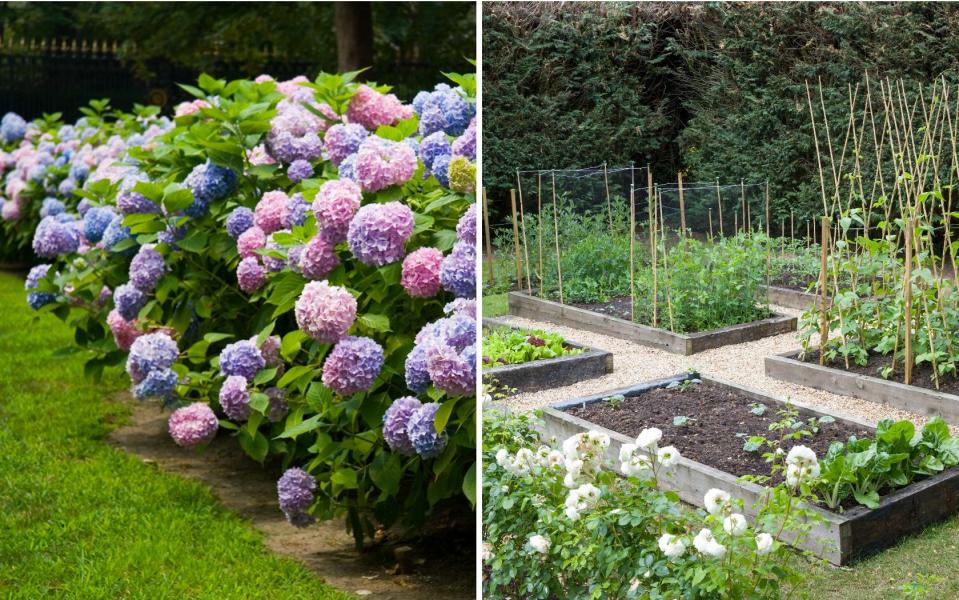
‘Traditional’ gardens
What are they?
Conventionally cultivated gardens which are “double dug”: topsoil is removed, subsoil is broken up and compost is added on top before being dug in and the topsoil replaced.
Who loves it?
The RHS – to a point. “Double digging may be hard work but it is perfect for creating new borders and deepening shallow topsoil,” it declares on its website. “Your approach very much depends on local conditions,” advises Guy Barter, the RHS’s chief horticulturalist. Those with light or compacted soil, who don’t have access to lots of compost or need to remove perennial weeds might find double digging works better for them.
What the haters say
It releases more carbon into the atmosphere, doesn’t help with drainage and is more work for gardeners.
Winners
Spade and fork manufacturers.
Losers
The soil.
No-dig gardens
What are they? Essentially, this is gardening with minimal disturbance to the soil: you mulch or compost the earth to feed it, but don’t dig that matter in, allowing earthworms and other soil organisms to do the work for you. Of course you need to dig into it to plant a tree, or a potato, but the idea is not to be constantly messing around with the ground.
Who loves them? Horticulturalist Charles Dowding, who pioneered no-dig gardening in the UK, having become interested in gardening and nutrition in the early 80s. “What I’d seen before was just weeding, endless weeding,” he says. “Organic in those days meant you were fighting weeds.”
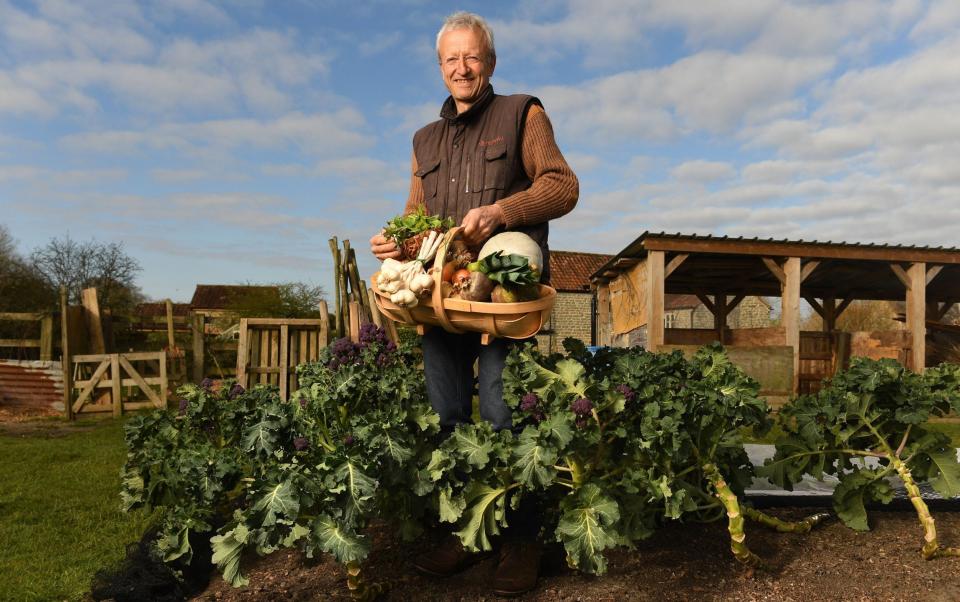
His interest in organic gardening and health led him to looking after the soil through mulching and reducing weeds that way, and eventually into not digging the compost into the soil at all. “There’s more and more evidence that it’s not the lazy approach but basically clever, because it allows the soil life to do what it wants,” he says. “You can transform [your soil] more easily with no-dig.”
What the haters say
It requires a fair amount of compost, which can cost an awful lot.
Winners
Gardeners – Dowding’s trials show yields are higher from no-dig beds, as well as the process being a lot less labour-intensive. The soil also wins as it can flourish out of sight.
Losers
Spade manufacturers.
Peat compost vs peat-free compost
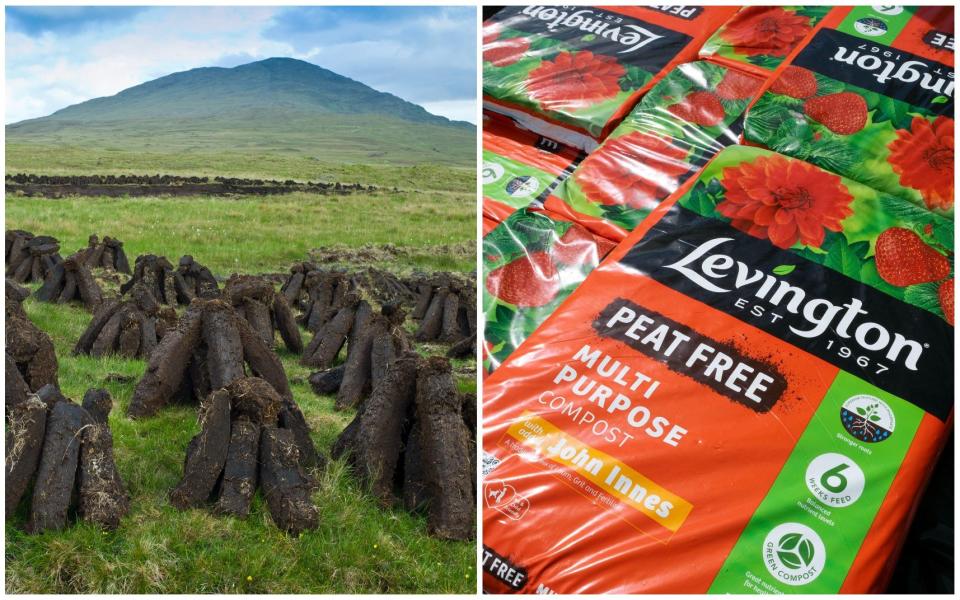
Peat compost
What is it?
Compost that contains peat, which retains both moisture and air, and is pretty much free of pests and diseases, hence being an excellent matter in which to grow plants. Peat itself is made up of the partially decomposed remains of ancient plants and animals, and is extracted from peat bogs, fens and marshes where it has taken thousands of years to form – which means it’s not easily or quickly renewable, hence the controversy.
Who loves it?
Most professional gardeners won’t dismiss peat compost entirely. “To be honest, it’s a much better growing material,” says one well-known gardener, who wishes to remain anonymous for fear of reprisals. “A little bit of peat is okay,” says Dowding, who says that peat is “a brilliant compost”, especially if it’s extracted in a sustainable way.
What the haters say
Peat bogs store almost one third of soil carbon, making them the largest soil carbon store – extracting peat for compost destroys habitats, increases flood risk and accelerates climate change. Peat compost will be banned from sale entirely from 2030.
Winners
Plants.
Losers
Peat bogs; the climate.
Peat-free compost
What is it?
Compost not containing peat and made from a range of organic materials, including wood waste, bark, coconut coir, green waste and composted garden waste.
Who loves it?
The RHS, which no longer sells peat-based compost. It boasts that its gardens are already 98 per cent peat-free, and it has pledged to become 100 per cent peat-free by the end of 2025. Monty Don, who in 2020 wrote to the Government calling for an end to the use of peat compost, saying that using it in the garden was “environmental vandalism.” Horticulturalist Jack Wallington, who experimented in 2015-16 by only using peat-free compost for every single plant he grew, and concluded he had better results with all of them.
What the haters say
“The alternatives [to peat] are lousy substitutes,” says landscape architect Bunny Guinness, who points out that not only is something like coir compost is arguably equally as bad for the environment as it comes from all around the world and is rinsed with huge amounts of water in places like Sri Lanka, but that with a poor-quality alternative to peat, you have to feed and water plants more, and they’re much more susceptible to dying.
Winners
Peat bogs.
Losers
Gardeners.
Weed killer vs weeds
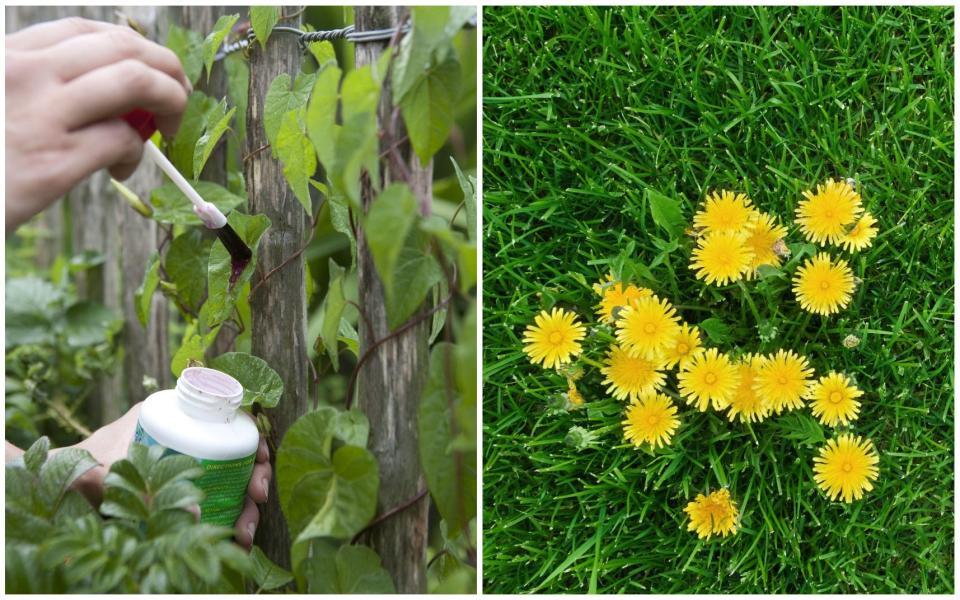
Weedkiller
What is it?
Chemical-based liquid specifically designed to target weeds. The most powerful contain glyphosate, a hardcore herbicide that will kill anything it touches.
Who loves it?
The majority of gardeners – but secretly. Not all support the use of glyphosate, but, points out Guinness, “if you’ve got bindweed or horsetail that’s the only way to get rid of it, as long as you use it wisely.”
What the haters say
“Weeds are part of the ecology of a garden that contribute to garden biodiversity,” says Guy Barter. “Chemical control should only be used as a last resort [for invasive, non-native weeds] in a minimal and highly targeted manner.”
Winners
Your garden boundaries.
Losers
Weeds.
Weeds
What are they? A plant considered undesirable in a particular situation.
Who loves them? The RHS, which “does not support the use of weedkiller” and instead suggests gardeners refer to weeds as “partner plants”, “weed heroes” or “superweeds.” Last year the gold-medal winning Centrepoint garden at the Chelsea Flower Show included 19 weed species. Jack Wallington, whose 2019 book Wild About Weeds taught gardeners how to grow weeds in interesting ways.
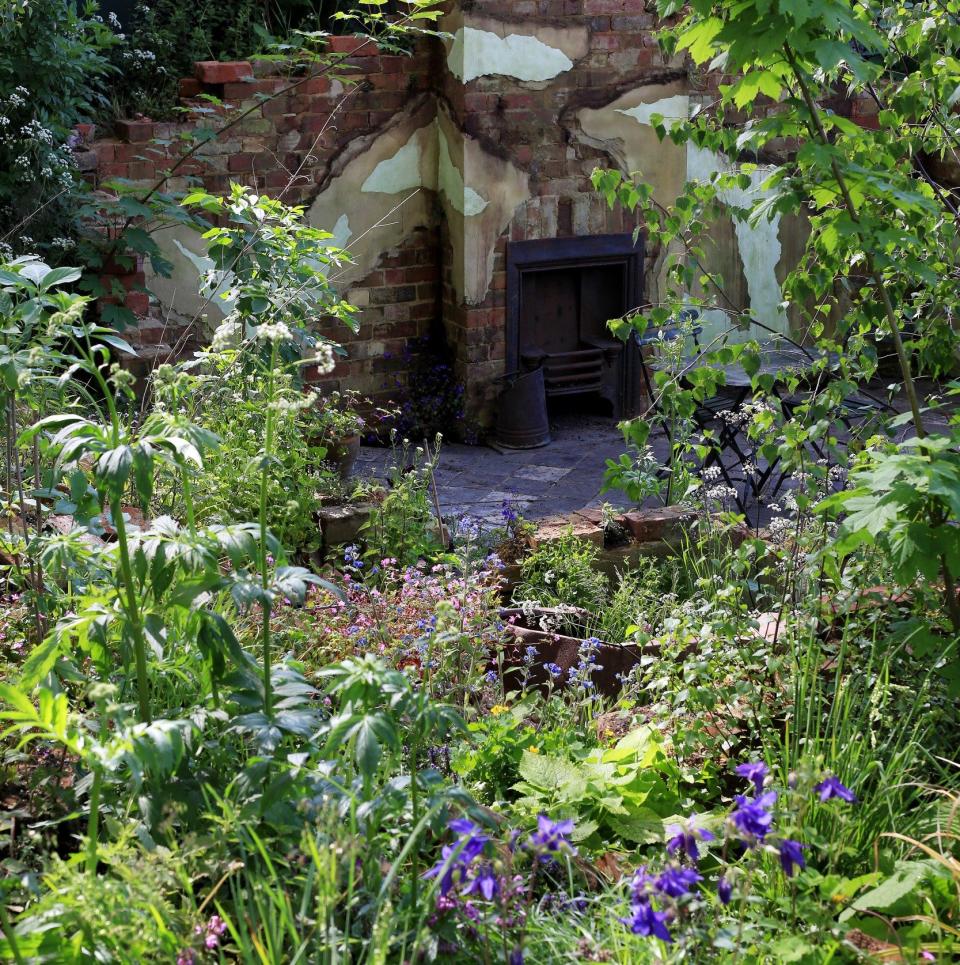
What the haters say
“There’s no place for weeds in my vegetable garden,” says Dowding. Go down the route of not managing weeds and you soon end up with a wild space – fine if that’s what you want; but, he asks, “what’s wrong with wanting to have a tidy garden?”
Winners
Dandelions.
Losers
Your veg patch.
Lawns vs rewilded meadows
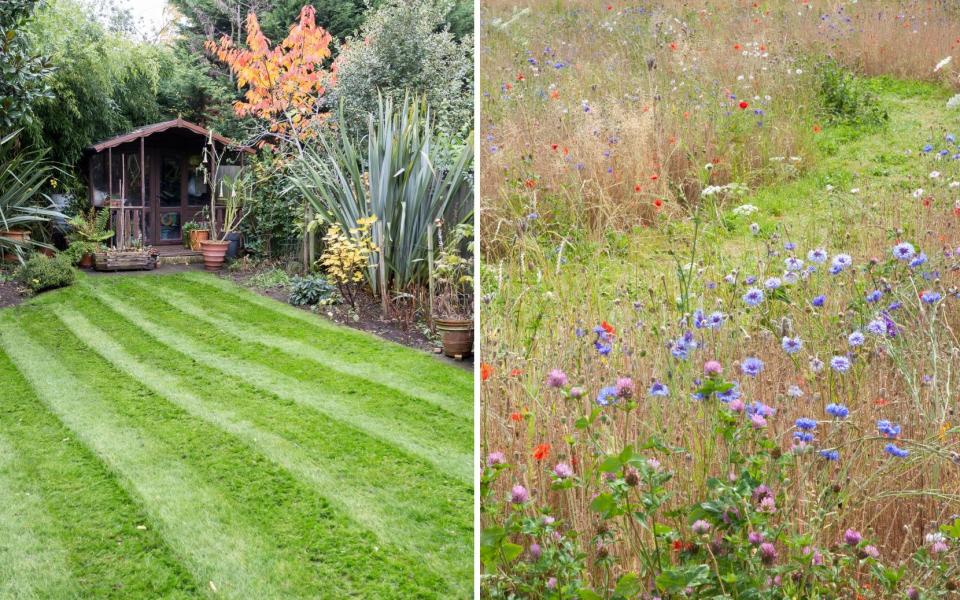
Lawns
What are they?
Areas of short, regularly mown and aesthetically tended grass
Who loves them?
Lots of gardeners, especially those without acres to spare. “I love a lawn,” says the horticulturist Charlie McCormick. Alan Titchmarsh has referred to his autumn anxiety, triggered by leaves falling onto and requiring raking from his neat lawn. This newspaper’s Charles Moore has extolled the beauty of a “carefully tended, great British lawn”, representing “leisure, order [and] perfect greenness.”
What the haters say
“Cutting grass burns lots of fossil fuel, makes a filthy noise and is about the most injurious thing you can do to wildlife” said Monty Don in 2021, who added that making sure one’s lawn is stripy and neat is an example of the male obsession with “controlling rather than embracing.” According to one Guardian columnist, the UK’s two-century-long relationship with the garden lawn, a “deeply needy monoculture of invasive plants designed originally and maintained since as a status symbol” is “problematic” and patriarchal. Don’t even get them started on fake grass.
Winners
Lawnmower companies, bowling greens and grass tennis courts
Losers
Weeds, wild grasses and anything else that might destroy the symmetry of a perfectly striped greensward
Rewilding
What is it?
Ditching the lawnmower and allowing nature to take over, dandelions, nettles, meadowgrass and all.
Who loves it?
Guardian columnists and Monty Don.
What the haters say
“There are some situations where you need a mown lawn – for access or because your children want somewhere to sit not surrounded by insects or rabbits,” says Dowding. Refusing on principle to have one is just virtue signalling. Plus, points out McCormick, even “wild” gardens are still maintained spaces.
Winners
The Wild.
Losers
Lawnmower companies.
Pests vs pest killers
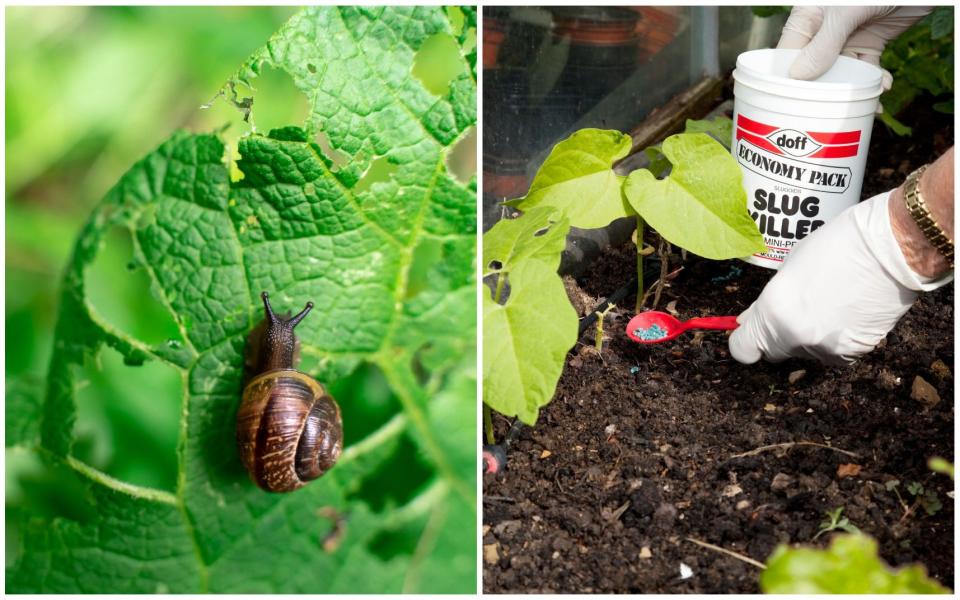
Pests
What are they?
Slugs, snails and anything else that will destroy your plants and eat their way through your veg patch.
Who loves them?
The RHS, which in 2022 declared it would no longer class slugs and snails as pests but an important part of the garden ecosystem. A new campaign between the RHS and the Wildlife Trust this year encourages us to all change our perceptions and appreciate slugs. “The majority [of slugs and snails] contribute in positive ways to our garden, including feeding on rotting plants, fungi, dung and even carrion, helping to recycle nitrogen and other nutrients and minerals back into the soil and providing food for some of our much-loved garden visitors including frogs, song thrushes and ground beetles,” says Barter, who adds that gardeners should consider creating special habitats for them with piles of logs and natural debris, and politely removing them to the compost heap every night.
What the haters say
“If I’m growing lettuces, I’m afraid I’ll use [organic] slug pellets,” declares Guinness. “I want to grow food for me, not for them.”
Winners
The 150 species of British slugs and snails.
Losers
Lettuces.
Pest killers
What are they?
Anything that will deal with the slimy things, from slug pellets to eggshells and coffee grounds.
Who loves them?
Bunny Guinness, if she’s growing lettuces. Dowding doesn’t use slug pellets but says he is “very much in favour of controlling them” and keeps a tidy garden, as well as eschewing wooden sides to his beds, which he says are a haven for slugs.
What the haters say
Gardeners should, says Barter, simply “choose plants that are more resilient to slugs, such as lavender, rosemary, hardy geraniums and hydrangeas.” Forget barriers like copper tape and wool pellets, he says; “our research has found these to have little benefit.” It should be noted that the RHS still sells slug and snail killer kits on its website.
Winners
Gardeners – to a point. Using chemicals to get rid of pests, or even salt to shrivel them, will ultimately make its way into and affect the quality of the soil.
Losers
Slugs.
Gardens vs outdoor sitting rooms
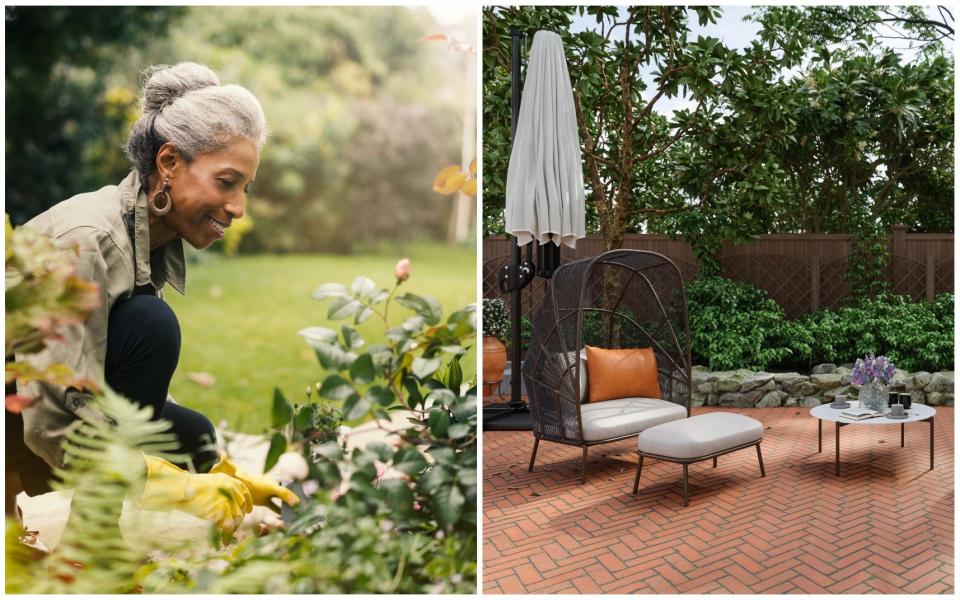
Gardens
What are they?
Cultivated outdoor areas, whether lawned or wild, slug-infested or kept rigorously tidy.
Who loves them?
The green-fingered, the retired and those with time on their hands
What the haters say
Life’s too busy to cultivate. Better to deck or pave it out, throw in some outdoor furniture and string up the fairy lights.
Winners
Nature.
Losers
Enemies of nature.
Outdoor sitting rooms
What are they?
Essentially an outdoor extension of your house, complete with washable rugs, plenty of comfy seating and perhaps a fire pit. Plants optional.
Who loves them?
The time-poor, and those who tend to kill all growing things.
What the haters say
What’s the point of having a garden without any plants?
Winners
Busy people (who live in warm enough climes to actually sit outside).
Losers
Frustrated gardeners.

